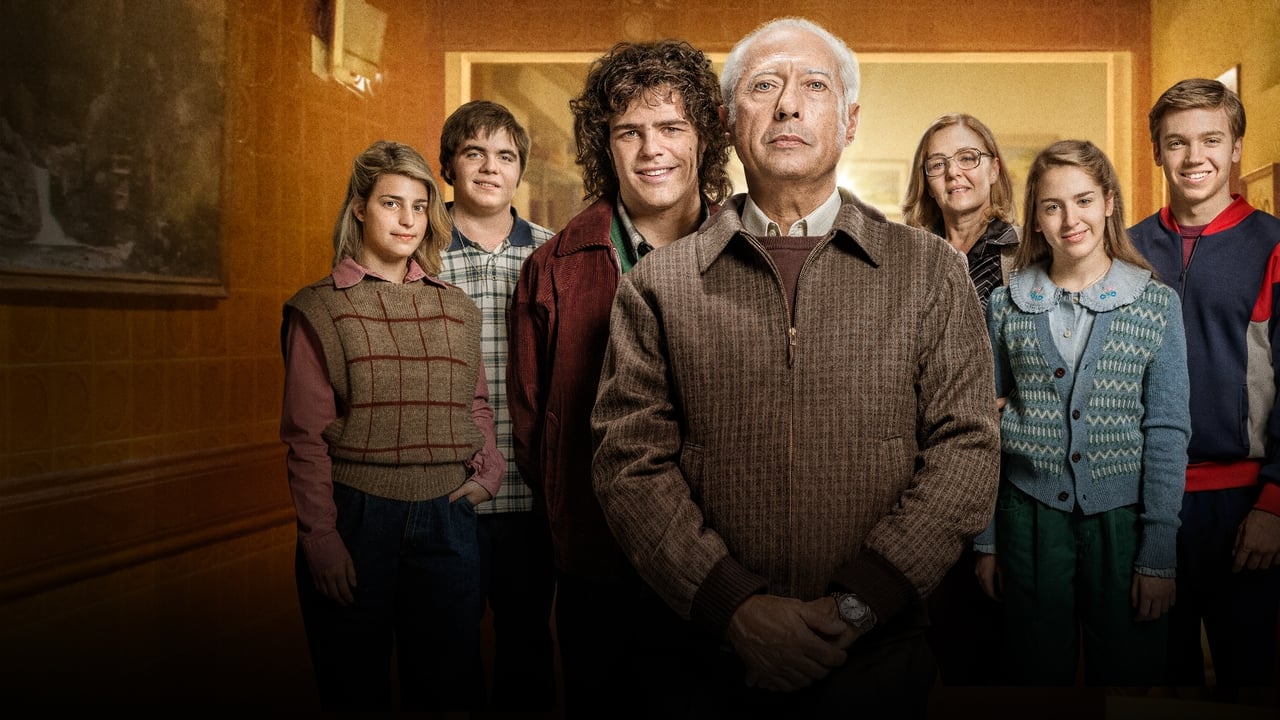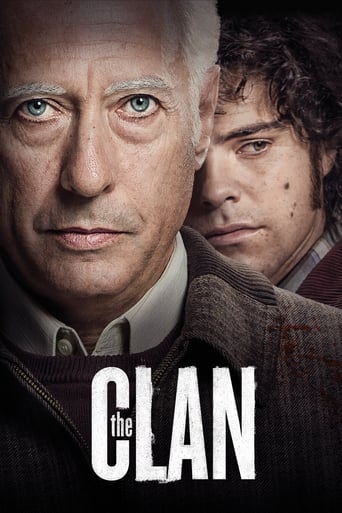



Excellent, Without a doubt!!
It's hard to see any effort in the film. There's no comedy to speak of, no real drama and, worst of all.
View MoreThe film makes a home in your brain and the only cure is to see it again.
View MoreGreat example of an old-fashioned, pure-at-heart escapist event movie that doesn't pretend to be anything that it's not and has boat loads of fun being its own ludicrous self.
View MoreThe true story of the Puccio family of Buenos Aires, Argentina. During the height of the Galtieri regime of the early-to-mid 1980s the Puccio family, lead by senior government official Arquimedes Puccio, kidnapped and held for ransom several individuals. On more than one occasion they murdered their victims. This is their story.Decent, though not compelling, docudrama. Details well the events involved and these make for interesting following. However, not overly compelling viewing. Is pretty much a blow-by-blow account and feels quite dry at times.Not a must-see, but not a total waste of time either.
View MoreThe terrible case of the Puccio clan really rocked Argentina back in 1985. And quite rightly so. For, not only had three people got kidnapped, savagely tortured and brutally killed (in two cases despite the fact that the ransom had been cashed), not only had another woman been held hostage for over a month and promised to a certain death (had her abductors not been arrested in time), but the perpetrators were... the members of a family, and even more upsetting, they were the well- educated, smiling members of a happy close-knit family! How could such a thing have happened? Where is society going if even its basic unit is not to be trusted anymore? Such were the questions the Argentinians asked themselves at the time and that filmmaker Pablo Trapero has decided to raise today, thirty years after the facts, in 'El Clan'. A right choice indeed since his latest opus, which could be qualified as a "shocker with substance", has become in between the highest-grossing Argentinian movie at the domestic box-office ever, a wonderful opportunity for the author of "Carancho" and "Elefanto blanco" (never one to shy from pinpointing the black spots of his own country) to address as wide an audience as possible. To achieve this aim, Trapero has stacked all the odds in his favor. First asset, his determination to stick to the facts and never to embellish on the truth, which lends weight to his reflection. The description of the "idyllic" family life within the walls of the Puccios' house rings as true as that of the detailed preparations and the brutal carrying out of the kidnappings. Not so surprising if you take into account the following statement the director made in an interview: (I based myself on) "photographs, letters, interviews with friends of Alejandro's, or people who had visited the house and lived in the neighborhood". Which does not mean that Trapero produced a mere lazy cut and paste of reality, for the second major quality of "El Clan" lies in his being a real movie, action-packed and filled with suspense and fraught moments, one would call a genre film if it was not underpinned by political thought (an examination of the fact that dictatorships breed monsters even after they are extinct). At any rate, the movie is at least as entertaining as it is thought-provoking. Last strong point, the perfect cast, led by the superlative Guillermo Francella, a high class performer who although more accustomed to comedy, is absolutely terrifying as Puccio: the coldness in his eyes is pure evil and constantly proves wrong his alleged affability. Also top notch is Peter Lanzani's performance: all good looks and natural charm outside, the young actor manages to bring to light his weakness and the moral conflict that haunts him for being unable to resist his father's influence). The only reservation this writer would express is about the soundtrack. I personally do not figure out what drove Pablo Trapero to illustrate this "Argentinian tragedy" set in the 1980's with... Anglo-American pop classics such as Creedence Cleanwater Revival's "Tombstone Shadow" (1969) and "Sunny Afternoon" (1966) by The Kinks !!! Not that I am a purist, but, in my case, this offbeat way of using source music did not work, especially in the case of the latter piece. In actual fact, hearing "Sunny Afternoon" juxtaposed on two tense sequences (played twice in full into the bargain) proved more distracting to me than atmospheric; I even surprised myself humming the tune might-heartedly, which was certainly not the director's intention! Despite what I consider a shortcoming (but I am in the minority: unlike me most reviewers praise the soundtrack), I highly recommend this globally excellent movie, where the (brilliant) form matches the (rich) matter.
View Morebefore seeing this film, I only knew it was Argentinian. as I watched the action unfold, it was as if someone was texting me what was coming next. I said to myself "I've seen too many movies.' what I actually meant was "Ive seen an awful lot of movies." anyway the patriarch of a Spanish family goes into the kidnapping business during the 1980's. the why is never answered, as they don't seem to live in luxury or spend the ransom money. there are so many unanswered questions that one doesn't really care after a while. the reason to go is Guillermo Francella. he is riveting and you can't take your eyes off of him. his son assists him in the kidnappings and I couldn't tell if he admired his father or was scared to death of him. the movie certainly captures all I know of the time after the junta and the movie does work. and I was surprised. anyway, go.
View MoreIt is a great story, there are great actors in scene, the soundtrack is impressive, but something is missing. Elements are just not glued well together, the movie feels like it doesn't know what it wants to be. It is still good entertainment and worth it. The Puccio case is memorable by itself, and Trapero makes it visually enjoyable with a main character that will hypnotize you with a cold-deep-blue-eyes. But what makes El Clan less interesting than previous works from Trapero is how superficial characters are and the low tension observed overall (which was remarkably good in previous Trapero's works). With weak character motivation it is harder to get the audience to feel what they feel. Suddenly you can't really empathize with the story you watch. I am hoping Trapero did this one for money and will come up with a more interesting personal project soon!
View More